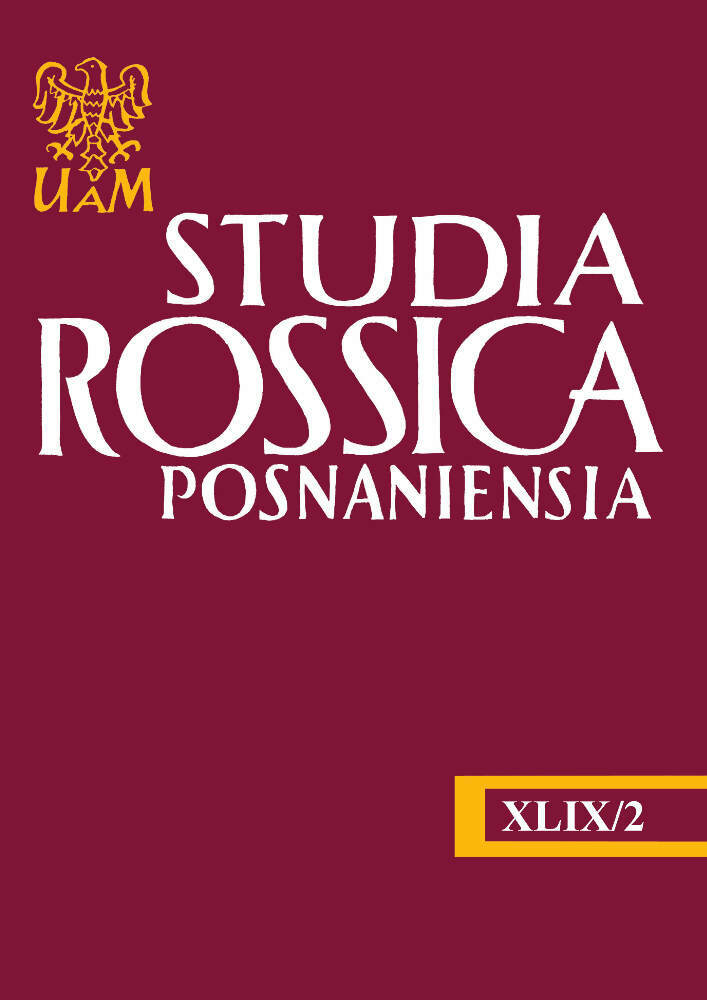Abstract
The article consists of several parts: an introduction, theoretical and practical parts, and the conclusion. This work touches upon several directions in linguistics. First of all, attention is paid to the concept of addressing, namely the terms addressee (Listener) and addresser (Speaker) and their interrelation at the moment of communication. The author provides a definition of human speech behavior, which at the present stage is usually considered in pragmalinguistics. The article focuses on the factor of the addresser in pedagogical discourse (the speech of a Russian language teacher at a secondary school in Slovakia is analyzed) from the point of view of observing the normativity of speech. In this regard, special attention is paid to the culture of speech and the concept of literary language. The work shows the varieties of norms of literary language, but the emphasis is on stylistic norms. The author focuses on the search for violations of stylistic norms in а scientific style. The article provides the author’s classification of selected language violations and characterizes the speech behavior of the Speaker.
References
Anisimova, Evgeniâ. „Paralingvistika i tekst (k probleme kreolizovannyh i gibridnyh tekstov)”. Voprosy âzykoznaniâ, 1, 1992, s. 71–79.
Bartmiński, Jerzy, Stanisława Niebrzegowska-Bartmińska. Tekstologia. Warszawa, Wydawnictwo Naukowe PWN, 2009.
Baženova, Elena. „Sredstva adresacii v naučnom tekste”. Mediaskop, 4, 2012, s. 1–14.
Černâvskaâ, Valeriâ. Lingvistika teksta. Lingvistika diskursa: učebnoe posobie. Moskva, Flinta, 2016.
Černâvskaâ, Valeriâ. Lingvistika teksta: Polikodovostʹ, intertekstualʹnostʹ, interdiskursivnostʹ. Moskva, Librokom, 2009.
Evtûgina, Alla. Funkcionalʹnaâ stilistika. Ekaterinburg, Rossijskij gosudarstvennyj professionalʹno-pedagogičeskij universitet, 2018.
Fedorov, Aleksandr. Frazeologičeskij slovarʹ russkogo literaturnogo âzyka. Moskva, Astrelʹ, 2008.
Formanovskaâ, Natalʹâ. „Adresat v âzykovoj kommunikacii”. Stylistyka i Kożyna – Stylistics and Kozhina. Stylistyka XIV, 14, 2005, s. 231–242.
Formanovskaâ, Natalʹâ. Rečevoj ètiket i kulʹtura obŝeniâ. Moskva, Vysšaâ škola, 1989.
Korina, Natalʹâ. Funkcionalʹnaâ stilistika russkogo âzyka. Nitra, UKF, EQUILIBRIA, 2014.
Kožina, Margarita, Liliâ Duskaeva, Vladimir Salimovskij. Stilistika russkogo âzyka. Moskva, Flinta, Nauka, 2008.
Norman, Boris. Lingvističeskaâ pragmatika (na materiale russkogo i drugih slavânskih âzykov). Minsk, BGU, 2009.
Perfilʹeva, Nataliâ. Metatekst v aspekte tekstovyh kategorij. Novosibirsk, NGPU, 2006.
Pisarkowa, Krystyna. „Zdanie mówione a rola kontekstu”. Studia nad składnią polszczyzny mówionej. Księga referatów konferencji poświęconej składni i metodologii badań języka mówionego. Red. Stanisław Grabias et al. Wrocław, Zakład Narodowy im. Ossolińskich, 1978, s. 7–20.
Rozentalʹ, Ditmar. Praktičeskaâ stilistika russkogo âzyka. Moskva, Vysšaâ škola,1987.
Sokolova, Âna. Govorâŝij v pragmatiko-smyslovom i kommunikativnom kontekstah. Nitra, UKF, 2021.
Ŝerba, Lev. Âzykovaâ sistema i rečevaâ deâtelʹnostʹ. Leningrad, Nauka, 1974.
Vinokur, Tatʹâna. Govorâŝij i slušaûŝij. Varianty rečevogo povedeniâ. Moskva, Nauka, 1993.
Zemskaâ, Ûliâ et al. Teoriâ teksta. Moskva, Flinta, Nauka, 2010.
License
Copyright (c) 2024 Bohdana Kravchenko

This work is licensed under a Creative Commons Attribution-NonCommercial-ShareAlike 4.0 International License.

